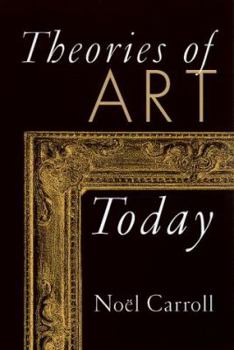Theories of Art Today
Select Format
Select Condition 
Book Overview
What is art? The contributors to Theories of Art Today address the assertion that the term "art" no longer holds meaning. They explore a variety of issues including: aesthetic and institutional theories of art, feminist perspectives on the philosophy of art, the question of whether art is a cluster concept, and the relevance of tribal art to philosophical aesthetics. Contributors to this book include such distinguished philosophers and historians as Arthur Danto, Joseph Margolis, and George Dickie.
Format:Hardcover
Language:English
ISBN:0299163504
ISBN13:9780299163501
Release Date:February 2000
Publisher:University of Wisconsin Press
Length:280 Pages
Weight:0.85 lbs.
Dimensions:9.5" x 0.8" x 6.3"
Customer Reviews
1 rating
A good argument against the Intentional Fallacy notion
Published by Thriftbooks.com User , 16 years ago
I read this book for a graduate seminar on the philosophy of art. An interesting facet of literature is how fiction is intentionally used by an author to introduce and argue non-fictional ideas and theories. This case in point is examined by Noël Carroll in his book "Theories of Art Today." Carroll astutely argues that if the "intentional fallacy" argument rests on the premise that "all literature is fictional," then this notion is problematic. Carroll observes that there are plenty of non-fictional passages in fictional books that authors insert to espouse philosophical or scientific theories, and that fiction is sometimes used as a "vehicle" to carry these ideas to the reader that they would ordinarily have a hard time getting out into the public in a "dry" treatise. Good examples of this notion are the novels written by Ayn Rand. Rand intentionally used several of her novels such as, The Fountainhead and Atlas Shrugged, both popular works of fiction, to espouse her libertarian philosophical theory of "objectivism." In addition, Carroll understands the interests that readers have, namely the "conversational interests" they have in "communion" with or "communicating" with the author through reading the text. Carroll wisely perceives that readers have a conversational interest in literature; a conversation of wanting to understand what the author is communicating. Thus, Carroll correctly argues, "We want to understand the author, even if that will lead to rejecting his or her point of view." I recommend this work for anyone interested in philosophy, philosophy of art, and textual criticism.





